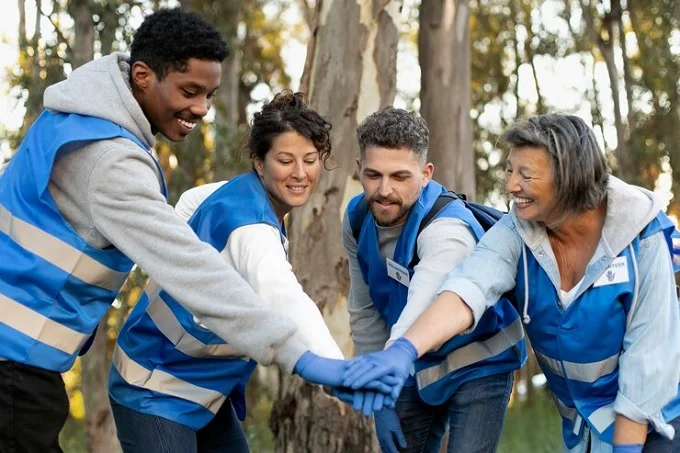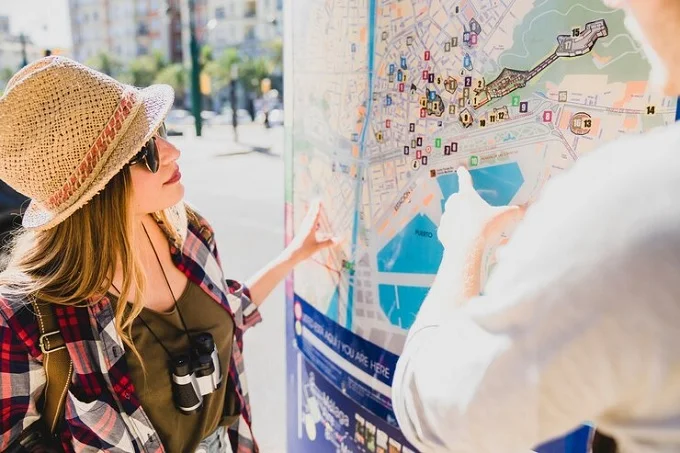Have you ever dreamed of making a difference while exploring the world? Welcome to the world of voluntourism, a unique blend of volunteering and tourism that’s taking the travel industry by storm. In fact, a recent study found that over 1.6 million people participate in voluntourism projects each year, spending more than $2 billion globally. But what exactly is voluntourism, and how can you get involved? Let’s dive in and explore this exciting way to combine travel with purpose.
Understanding Voluntourism: More Than Just a Vacation
Voluntourism, also known as volunteer tourism, is a form of tourism where travelers participate in voluntary work, typically for a charity or non-profit organization. It’s a way to give back to local communities while experiencing new cultures and destinations. But how did this concept come to be?
The Origins of Voluntourism
The roots of voluntourism can be traced back to the mid-20th century, with the establishment of organizations like the Peace Corps. However, it wasn’t until the early 2000s that the term “voluntourism” gained popularity. Since then, it has grown into a significant sector of the tourism industry.
Traditional Tourism vs. Voluntourism
Unlike traditional tourism, which often focuses solely on relaxation and sightseeing, voluntourism adds a layer of purpose to your travels. As a voluntourist, you’re not just a passive observer – you’re an active participant in the local community.
The Rise of Voluntourism in the 21st Century
In recent years, voluntourism has exploded in popularity, especially among millennials and Gen Z travelers. This surge can be attributed to increased global awareness, a desire for meaningful travel experiences, and the ease of finding volunteer opportunities abroad through digital platforms.
Benefits of Voluntourism: Making a Difference While You Travel
Voluntourism offers a unique set of benefits, both for the traveler and the host communities. Let’s explore some of these advantages:
Personal Growth and Development
One of the most significant benefits of voluntourism is the opportunity for personal growth. As a voluntourist, you’ll:
- Learn new skills: Whether it’s teaching English, building homes, or conducting wildlife research, you’ll gain valuable hands-on experience.
- Experience different cultures: Immerse yourself in local customs, traditions, and ways of life, broadening your worldview.
Positive Impact on Local Communities
Voluntourism can have a significant positive impact on host communities when done responsibly:
- Economic benefits: Voluntourists often contribute to the local economy through their spending and project contributions.
- Social benefits: Cultural exchange and skill-sharing can lead to long-term positive changes in communities.
Environmental Benefits
Many voluntourism projects focus on environmental conservation:
- Conservation efforts: Participate in wildlife protection, reforestation, or marine conservation projects.
- Sustainable practices: Learn and promote eco-friendly practices that benefit local ecosystems.
Popular Voluntourism Destinations: Where Can You Make a Difference?
Voluntourism opportunities are available worldwide, but some regions are particularly popular:
Africa
- Wildlife conservation projects: Work with endangered species in national parks and reserves.
- Community development programs: Help build schools, clinics, or water systems in rural areas.
Asia
- Teaching English: Share your language skills with students in countries like Thailand or Cambodia.
- Healthcare initiatives: Assist in medical clinics or public health education programs.
Latin America
- Environmental conservation: Protect rainforests or marine ecosystems in countries like Costa Rica or Ecuador.
- Cultural exchange programs: Immerse yourself in indigenous communities and help preserve traditional practices.
Types of Voluntourism Activities: Finding Your Perfect Match
Voluntourism offers a wide range of activities to suit different interests and skills:
Community Development
- Building schools and homes: Help construct vital infrastructure in underserved areas.
- Clean water projects: Assist in providing access to safe drinking water for communities in need.
Wildlife Conservation
- Research and monitoring: Collect data on endangered species and their habitats.
- Animal rescue and rehabilitation: Care for injured or orphaned animals in wildlife sanctuaries.
Environmental Sustainability
- Reforestation projects: Plant trees and help restore damaged ecosystems.
- Beach clean-ups: Combat marine pollution and protect coastal habitats.
Education and Healthcare
- Teaching and tutoring: Share your knowledge with students of all ages.
- Medical missions: Provide healthcare services in underserved communities (for qualified professionals).
How to Choose a Voluntourism Program: Making the Right Choice
Selecting the right voluntourism program is crucial for ensuring a positive experience for both you and the host community. Here are some tips to help you make an informed decision:
Researching Reputable Organizations
- Look for red flags: Be wary of organizations that prioritize profit over community impact.
- Ask questions: Don’t hesitate to inquire about the organization’s goals, methods, and long-term impact.
Aligning Personal Skills and Interests
Choose a project that matches your skills and passions. This will ensure you can make a meaningful contribution and enjoy your experience.
Considering the Impact on Local Communities
Look for programs that work closely with local communities and prioritize sustainable, long-term impact.
Budgeting and Costs Involved
Be aware of all costs associated with the program, including fees, travel expenses, and living costs.
Ethical Considerations in Voluntourism: Doing More Good Than Harm
While voluntourism can be incredibly rewarding, it’s essential to approach it ethically and responsibly:
Avoiding Exploitation
- Ensure ethical treatment of volunteers and host communities.
- Be cautious of programs that may inadvertently perpetuate harmful stereotypes or dependencies.
Ensuring Sustainable Impact
- Prioritize long-term projects over short-term “feel-good” experiences.
- Look for programs that build local capacity and empower communities.
Cultural Sensitivity
- Respect local customs and traditions.
- Be open to learning from the community rather than imposing your own views.
Avoiding “Voluntourism Traps”
- Be wary of programs that seem to prioritize the volunteer experience over community needs.
- Research the potential negative impacts of certain types of voluntourism, such as orphanage tourism.
Personal Stories and Testimonials: Real Experiences from Voluntourists
To give you a better idea of what voluntourism is like, let’s hear from some experienced voluntourists:
Sarah’s Story: Teaching in Nepal
“I spent three months teaching English in a small village in Nepal. It was challenging at times, but the connections I made with my students and the local community were priceless. I learned so much about Nepali culture and myself during that time.”
Mark’s Experience: Wildlife Conservation in South Africa
“Working on a wildlife reserve in South Africa was a dream come true. I helped with animal tracking, data collection, and even assisted in a rhino dehorning operation to protect them from poachers. It was hard work, but knowing I was contributing to conservation efforts made it all worthwhile.”
Lessons Learned
Here are some tips from experienced voluntourists:
- Be open-minded and flexible.
- Take time to build relationships with the local community.
- Remember that you’re there to learn as much as to help.
- Be prepared for challenges, but embrace them as opportunities for growth.
The Future of Voluntourism: Trends and Predictions
As voluntourism continues to evolve, several trends are emerging:
Increasing Focus on Ethical Practices
There’s a growing emphasis on responsible and sustainable voluntourism practices that prioritize community needs and long-term impact.
The Role of Technology
Digital platforms are making it easier to connect volunteers with projects and to ensure transparency in voluntourism organizations.
Skill-Based Voluntourism
There’s a shift towards matching volunteers’ specific skills with community needs, rather than general “unskilled” volunteer work.
Conclusion: The Lasting Impact of Voluntourism
Voluntourism offers a unique opportunity to make a difference while exploring the world. When done responsibly, it can lead to personal growth, cultural understanding, and positive change in communities around the globe. As you consider your next travel adventure, why not explore the possibility of combining your journey with purpose?
Remember, the world is waiting for you to make your mark. Happy voluntouring!



